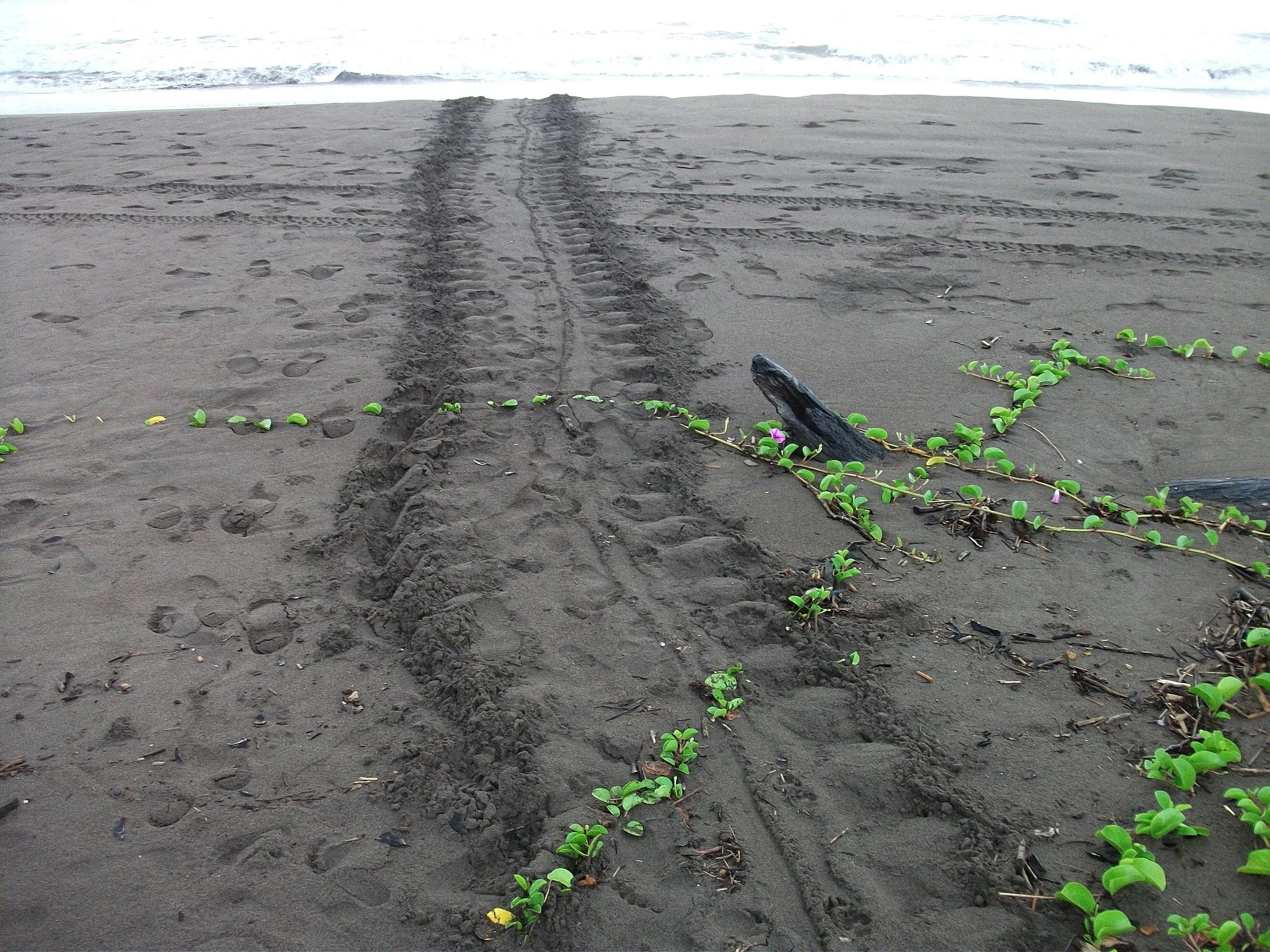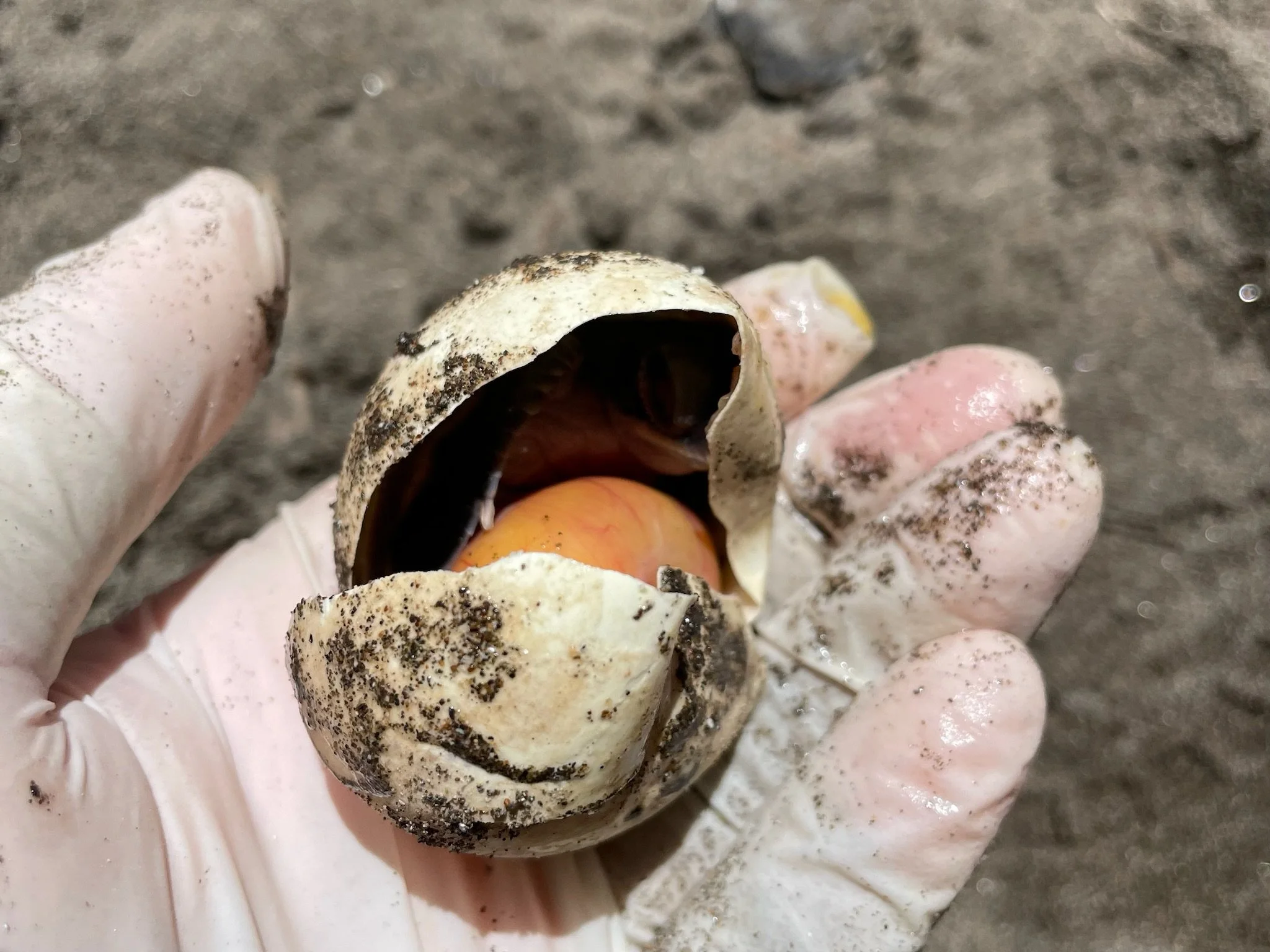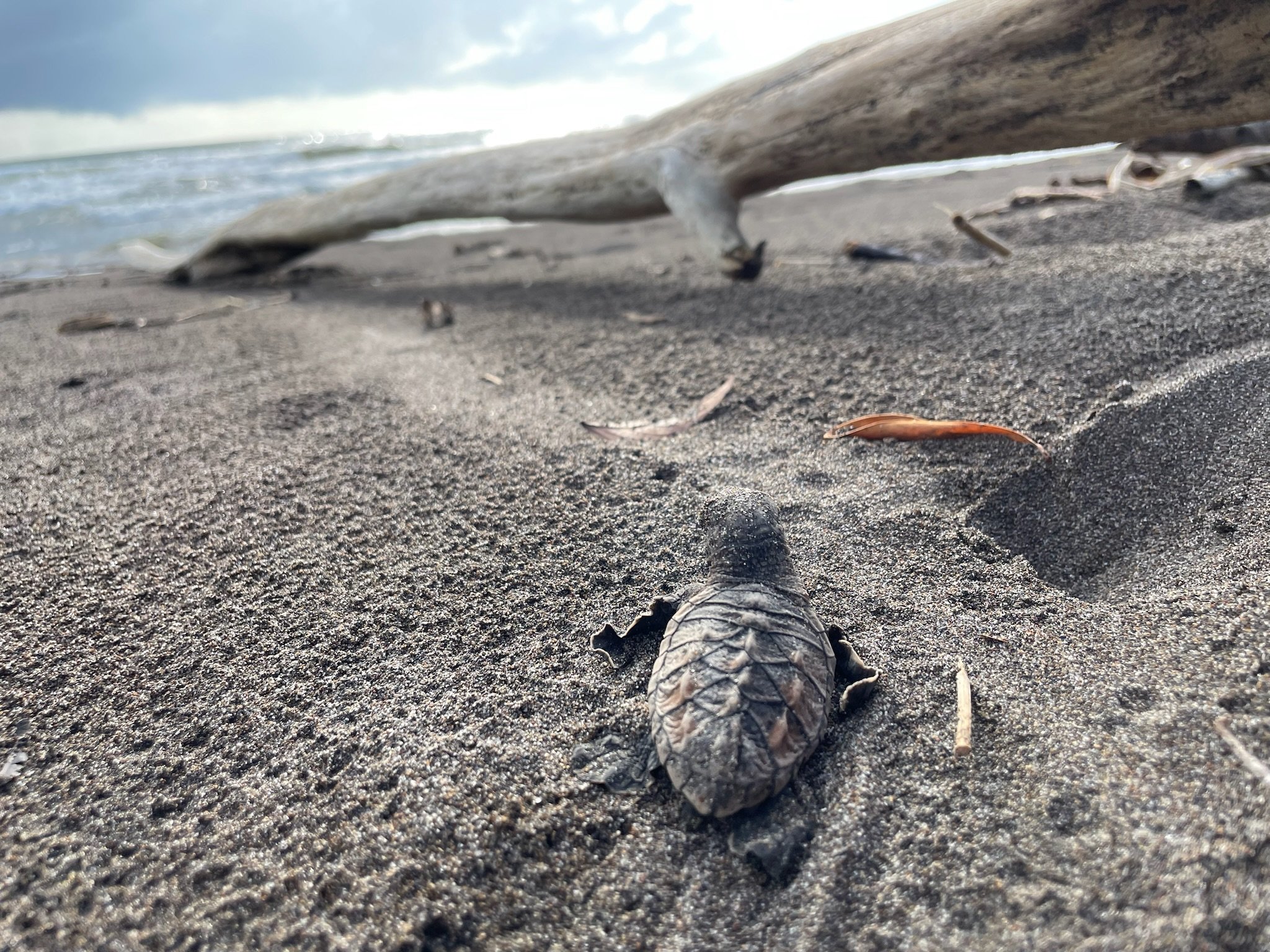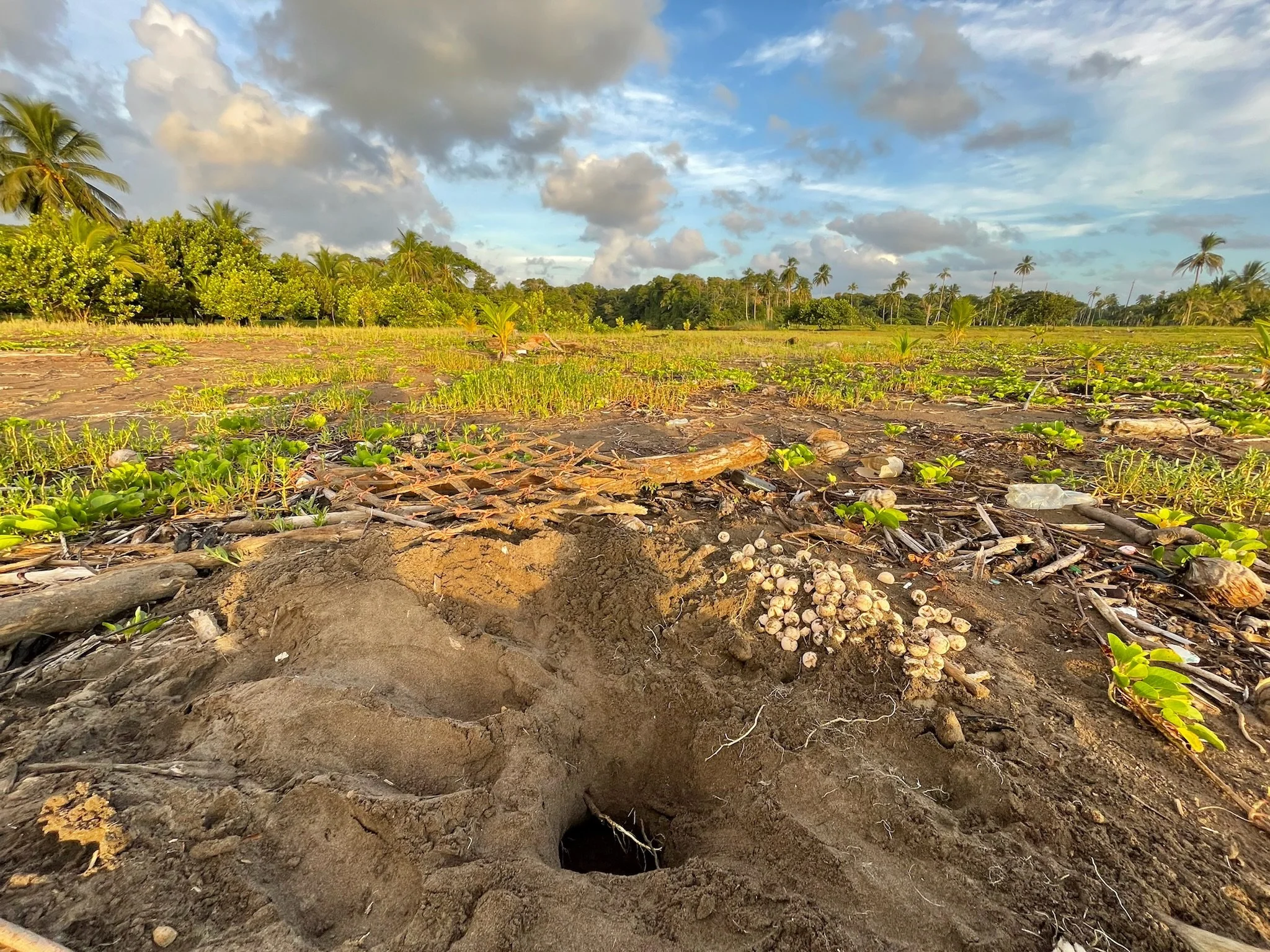Marine Turtles
Since 2004, the marine-turtle monitoring and tagging program has been a major focus for CPBS. Conducted between March and November each year, this program was designed to conduct research on nesting sea turtles, to monitor their health, to educate the public on sea-turtle ecology and conservation, and to deter poaching through a consistent presence on the beach.
The program consists of two daily surveys: one (or more) overnight survey and one morning survey. Night surveys are designed so surveyors have the best opportunity to encounter nesting sea turtles. The 5km (3 mile) beach transect is walked throughout the night by one or more teams. If there are multiple teams, times are staggered to increase the probability of detection, particularly at the height of turtle nesting season. When teams find a sea turtle, they collect data on her, including an egg count, body measurements, and body check. If she is not tagged, the team will tag her, giving her a unique identification number. The location of the nest is then taken, and the team stays with her until nesting is complete and she safely returns to the sea. Morning surveys are designed to allow surveyors to record additional turtle activity that was not detected by the night teams. They also collect data on any poaching or predation of nests, place mesh where appropriate to protect from predation, and excavate nests following their hatching period to determine nest success. This program has helped protect and conserve sea turtles since 2004 and supported many publications.
Published research
Damian, M., Harris, A., Aussage, J., & Fraser, G. S. (2022). Seasonal deposition of marine debris on an important marine turtle nesting beach in Costa Rica. Marine Pollution Bulletin, 177, 113525. *
Pheasey, H., McCargar, M., Glinsky, A., & Humphreys, N. (2018). Effectiveness of concealed nest protection screens against domestic predators for green (Chelonia mydas) and hawksbill (Eretmochelys imbricata) sea turtles. Chelonian Conservation and Biology, 17(2), 263-270. *
Restrepo, J., Rojas-Cañizales, D., & Valverde, R. A. (2022). Historical Records of Loggerhead Sea Turtle (Caretta caretta) Nesting at Tortuguero, Costa Rica. Journal of Herpetology, 56(3), 336-340. *
Velez-Espino, A., Pheasey, H., Araújo, A., & Fernández, L. M. (2018). Laying on the edge: demography of green sea turtles (Chelonia mydas) nesting on Playa Norte, Tortuguero, Costa Rica. Marine Biology, 165(3), 1-12. *




